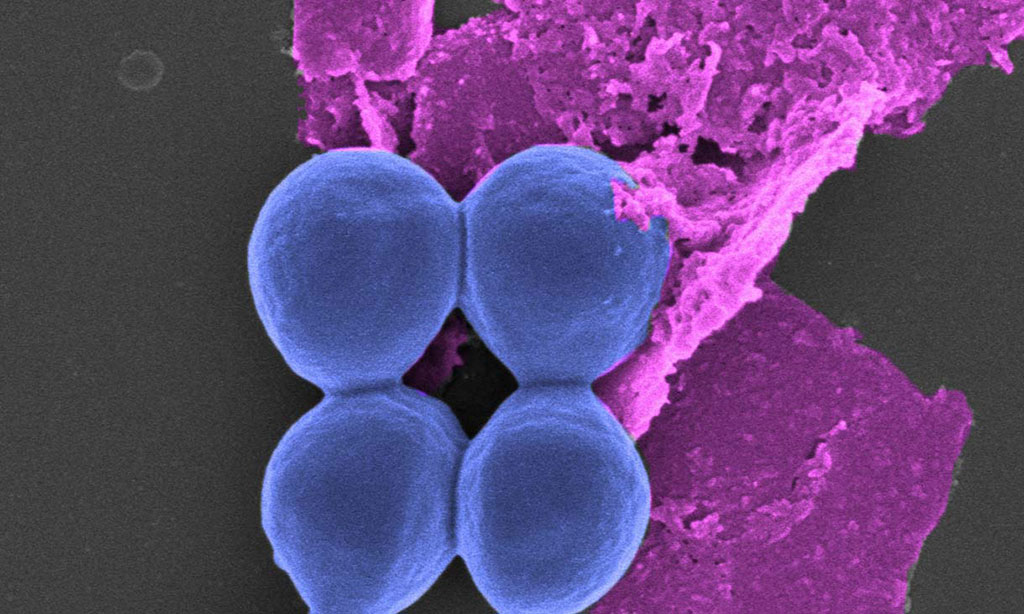Infection
Nano-Thin Superbug-Slaying Material Integrated into Implants Can Prevent or Heal Bacterial Infections
Image: The ball shapes are bacteria and the “sheet” is black phosphorus, as seen under a microscope (Photo courtesy of RMIT University)
Antibiotic resistance is turning into a severe worldwide health crisis, contributing to approximately 700,000 deaths each year. This number could skyrocket to 10 million annual deaths by 2050 if new antibacterial treatments aren’t developed. Superbugs, the culprits behind the huge health burdens, are bacteria that have grown resistant to antibiotics. As their resistance increases, it’s becoming exceedingly difficult to manage and treat infections caused by these pathogens. Medical professionals globally are urgently seeking alternative ways to treat bacterial infections without relying on antibiotics. Now, researchers have invented a nano-thin superbug-eliminating material that can be used in wound dressings and implants to either prevent or treat bacterial infections.
Black phosphorus is the most stable form of phosphorus, a naturally occurring mineral found in numerous foods. In its ultra-thin form, black phosphorus easily degrades upon contact with oxygen, making it a potent microbe killer. A previous study led by researchers at RMIT University (Melbourne, VC, Australia) had found that when black phosphorus was used in nano-thin coatings on materials like cotton and titanium—common in wound dressings and implants—it effectively killed microbes. Their latest study examined how well this black phosphorus-based nanotechnology could perform in advanced infection treatments and wound healing.
The study found the treatment to be extremely effective, killing more than 99% of bacteria while sparing other cells in biological models. It achieved results comparable to antibiotics in wiping out infections and even promoted quicker wound healing, with wounds showing 80% closure within a week. The superbug-killing nanotechnology by RMIT exhibited rapid antimicrobial action and then self-decomposed after the infection risk was eliminated. It proved effective against a wide spectrum of antibiotic-resistant bacteria, including strains like ‘golden staph,’ commonly classified as superbugs. RMIT has moved to patent this innovative use of black phosphorus flakes, particularly its applications in wound healing products like gels.
“This is exciting as the treatment was comparable to the ciprofloxacin antibiotic in eradicating wound infection and resulted in accelerated healing, with wounds closing by 80% over seven days,” said lead researcher, Dr. Zlatko Kopecki. “We urgently need to develop new alternative non-antibiotic approaches to treat and manage wound infection. Black phosphorus seems to have hit the spot and we look forward to seeing the translation of this research towards clinical treatment of chronic wounds.”
Related Links:
RMIT University

